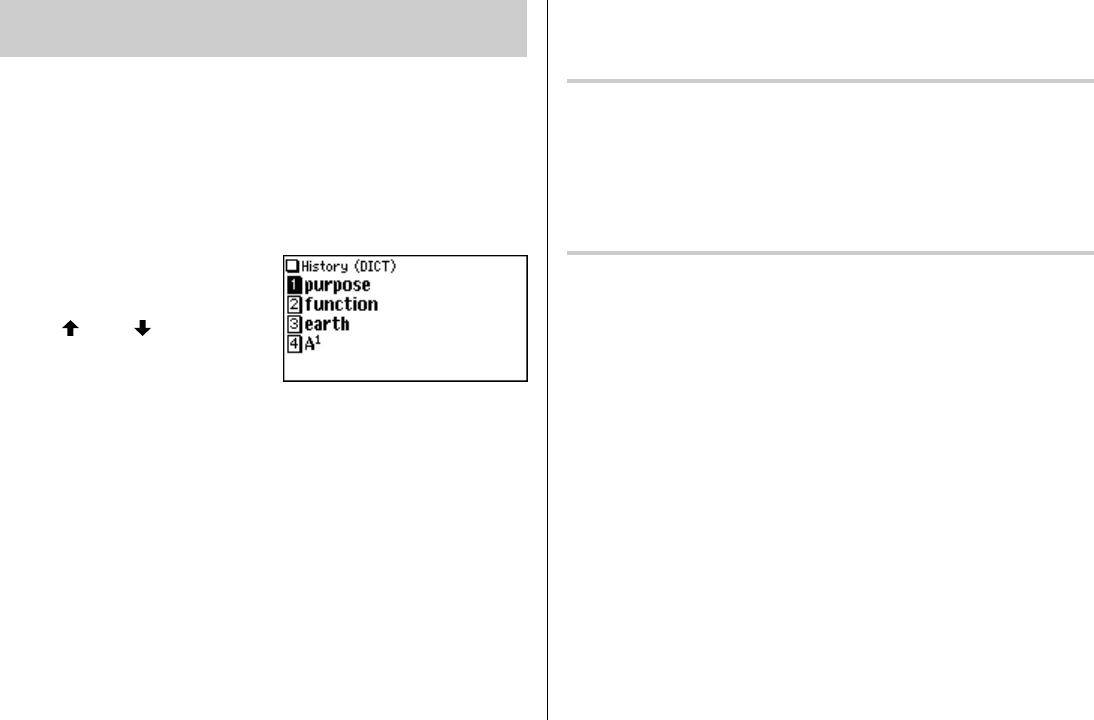
28
Use the History function to recall a headword or phrase previously searched in the
Dictionaries.
How to use the History function
<Example>
Recall the search history in the
Oxford Dictionary of English
.
1. Press
d
to open the
Oxford Dictionary of English
.
2. Press
h
. The history view
appears, with the most recent search
placed at the top of the list.
When ‘
’ and/or ‘ ’ appears on the
left side of the window,
} {
or
>
<
can be used to scroll the window.
3. Use the number keys to select a desired word in the list.
The detail view of the selected word appears.
Note:
• Each Dictionary has its own history list. Additionally, phrase search history list of
each of the
Oxford Dictionary of English
and the
Oxford Thesaurus of English
is
made.
• Solver functions (Crossword solver, Puzzle solver and Anagram solver) have no
history list.
•To view the history list, press
h
at the initial screen of each Dictionary,
and the initial screen of each phrase search.
•Truncated words in the list are indicated with trailing ‘...’ at the end.
• Each history list can contain up to 30 items. The oldest item will be deleted as
item count exceeds 30.
Using the History function
• The items selected by the Random quote in the
Oxford Dictionary of Quotations
will also be added in the history.
Deleting a history item
1. Display the history list on the screen.
2. Use the
}
or
{
key to place the cursor on the word to be deleted. The reverse
colour indicates the selected item.
3. Press
(
. A confirmation dialog for deletion appears.
4. Press
Y
. The selected word is deleted.
Deleting the history list of a Dictionary
1. Press
m
, then
8
to open the Set-up menu.
2. Press
4
to select ‘Deleting history’.
3. Use the number keys to select the history list you wish to delete. A confirmation
dialog for deletion appears.
•To delete all history lists, select ‘ALL’.
• Selecting ‘only DICT’ or ‘only THES’ will also delete the history list of each
phrase search.
4. Press
Y
. The selected history is deleted and the main menu appears.
